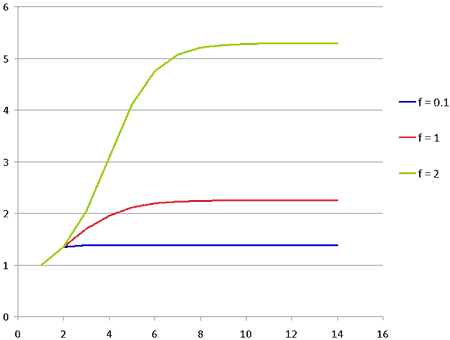 Arguments
Arguments
 Software
Software
 Resources
Comments
Resources
Comments
 The Consensus Project
The Consensus Project
 Translations
Translations
 About
Support
About
Support


Latest Posts
- Skeptical Science New Research for Week #6 2026
- The future of NCAR remains highly uncertain
- Fact brief - Can solar projects improve biodiversity?
- How the polar vortex and warm ocean intensified a major US winter storm
- 2026 SkS Weekly Climate Change & Global Warming News Roundup #05
- Help needed to get translations prepared for our website relaunch!
- Skeptical Science New Research for Week #5 2026
- Climate Variability Emerges as Both Risk and Opportunity for the Global Energy Transition
- Fact brief - Are solar projects hurting farmers and rural communities?
- Winter 2025-26 (finally) hits the U.S. with a vengeance
- 2026 SkS Weekly Climate Change & Global Warming News Roundup #04
- Skeptical Science New Research for Week #4 2026
- WMO confirms 2025 was one of warmest years on record
- Fact brief - Do solar panels release more emissions than burning fossil fuels?
- Keep it in the ground?
- 2026 SkS Weekly Climate Change & Global Warming News Roundup #03
- Skeptical Science New Research for Week #3 2026
- Climate Adam - Will 2026 Be The Hottest Year Ever Recorded?
- Fact brief - Does clearing trees for solar panels release more CO2 than the solar panels would prevent?
- Where things stand on climate change in 2026
- 2026 SkS Weekly Climate Change & Global Warming News Roundup #02
- Skeptical Science New Research for Week #2 2026
- UK renewables enjoy record year in 2025 – but gas power still rises
- Six climate stories that inspired us in 2025
- How to steer EVs towards the road of ‘mass adoption’
- 2026 SkS Weekly Climate Change & Global Warming News Roundup #01
- Skeptical Science New Research for Week #1 2026
- 2025 in review - busy in the boiler room
- Direct Air Capture
- IEA: Declining coal demand in China set to outweigh Trump’s pro-coal policies
Archived Rebuttal
This is the archived Basic rebuttal to the climate myth "Positive feedback means runaway warming". Click here to view the latest rebuttal.
What the science says...
| Positive feedback won't lead to runaway warming; diminishing returns on feedback cycles limit the amplification. |
Some skeptics ask, "If global warming has a positive feedback effect, then why don't we have runaway warming? The Earth has had high CO2 levels before: Why didn't it turn into an oven at that time?"
Positive feedback happens when the response to some change amplifies that change. For example: The Earth heats up, and some of the sea ice near the poles melts. Now bare water is exposed to the sun's rays, and absorbs more light than did the previous ice cover; so the planet heats up a little more.
Another mechanism for positive feedback: Atmospheric CO2 increases (due to burning of fossil fuels), so the enhanced greenhouse effect heats up the planet. The heating "bakes out" CO2 from the oceans and arctic tundras, so more CO2 is released.
In both of these cases, the "effect" reinforces the "cause", which will increase the "effect", which will reinforce the "cause"... So won't this spin out of control? The answer is, No, it will not, because each subsequent stage of reinforcement & increase will be weaker and weaker. The feedback cycles will go on and on, but there will be a diminishing of returns, so that after just a few cycles, it won't matter anymore.
The plot below shows how the temperature increases, when started off by an initial dollop of CO2, followed by many cycles of feedback. We've plotted this with three values of the strength of the feedback, and you can see that in each case, the temperature levels off after several rounds.

So the climatologists are not crazy to say that the positive feedback in the global-warming dynamic can lead to a factor of 3 in the final increase of temperature: That can be true, even though this feedback wasn't able to cook the Earth during previous periods of high CO2.
Note: A more detailed explanation is provided here.
Updated on 2010-09-13 by nealjking.
THE ESCALATOR

(free to republish)
























































